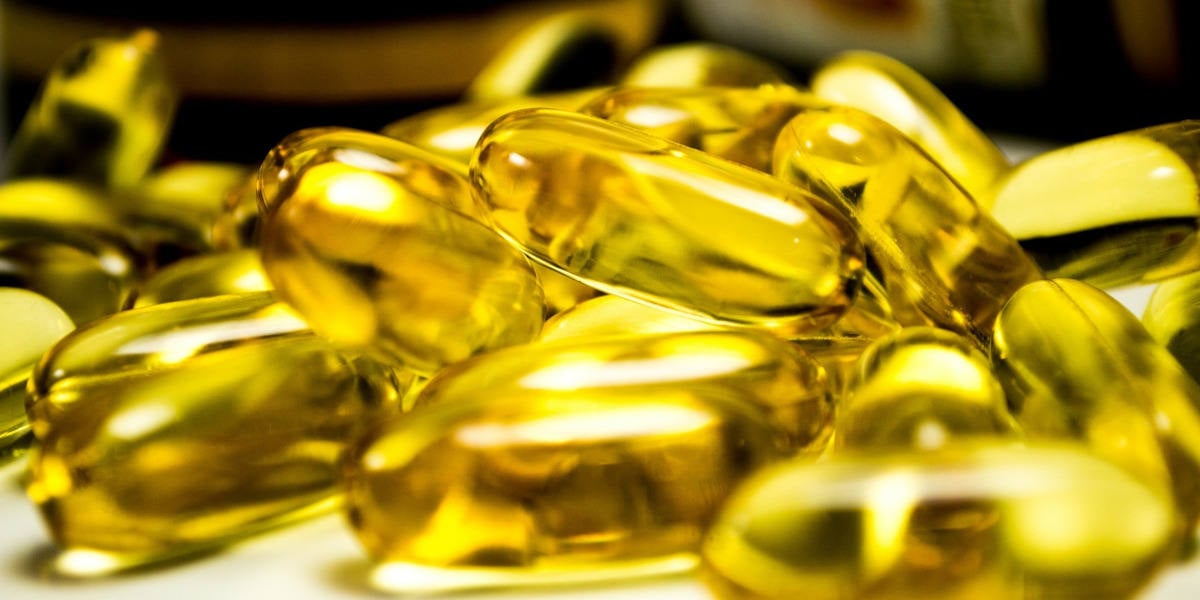Despite the numerous benefits of the ketogenic diet, following such a diet for the long-term might require the addition of some keto supplements to manage to fulfill the macro and micronutrient needs of an individual. In this article, we are going to discuss what kind of supplements do you need on keto, and how to make the most of the food you eat!
Table of Contents
Why Do You Need Keto Supplements?

Limited carbohydrate consumption means a reduction in the consumption of starchy vegetables, grains, and fruits. These food categories provide many micro and macronutrients and a great number of vitamins, and minerals.
The ketogenic diet allows you to eat some fruits i.e. berries or some non-starchy vegetables like spinach, broccoli, etc. but these fruits and veggies do not provide all the necessary vitamins and minerals needed to cover the daily requirements of an individual. Some specific nutrient deficiencies are most common among people who follow a ketogenic diet and these are going to be analyzed in the next paragraphs.
Vitamin D as One of the Most Important Keto Supplements
This important vitamin functions as a hormone in the body. Among other things, it plays a role in the body’s management of micronutrients such as calcium, magnesium and phosphorous. It is a fat-soluble vitamin and is naturally found in foods like fatty fish, liver, egg yolks and pastured and grass-fed meat. According to the government’s last estimate, roughly a third of Americans don’t get enough vitamin D.
The main source of this vitamin is the sun and it is produced by the body when the skin is exposed to sunlight. During sunny weather, a mere 15 to 20 minutes of sun exposure can provide all the vitamin D needed for the day. However, the process happens slower in people with more pigmentation (darker skin). Additionally, to meet the required levels of vitamin D you need to expose large areas of the skin without using sunscreen.
Unfortunately, winter weather in temperate climates makes it nearly impossible to make enough vitamin D from the sun. On the other hand, there are studies on the vitamin D status in Europe reporting that vitamin D deficiency is more common in southern than in northern Europe, which is an unexpected finding considering the number of sunny days in each area (1).
Also, jobs that keep us indoors can cause deficiency even in the summertime. Deficiency can cause issues, such as fragile bones and a higher risk of cardiovascular disease or cancer. Having an optimal level of vitamin D makes fat loss easier and aids muscle growth and strength. It also maintains the health of the immune system and can possibly increase low testosterone levels.
Vitamin D and Keto
While the health benefits of vitamin D apply to everyone, those who eat keto may find them especially important. A ketogenic diet causes electrolyte loss, so the vitamin’s ability to help absorb them (i.e. calcium) is important. Vitamin D3 deficiency was first observed in children following a ketogenic diet to control epilepsy (2).
Since many go keto to lose weight and lower their risk of heart attack, they can certainly use the heart-protecting qualities of vitamin D. Bodybuilders and other athletes will appreciate the muscular benefits.
Many foods that are high in vitamin D are keto-friendly, so a good first step is to get plenty of them. However, it may not be possible to get enough from food alone, especially in the winter months or if your skin is too dark. Supplemental vitamin D can help you maintain the levels of the vitamin throughout the year.

Omega-3 or Fish Oil Supplements
Fatty acids are important for a balanced and healthy diet and play a significant role in everyone’s health. They are “essential” fatty acids because we cannot produce them in our bodies; therefore we need to get them through our diet or through supplements.
Omega-3s are polyunsaturated fats (PUFAs) of the highest order. While vegetable oils are PUFAs, their content is also high in omega-6s, which are inflammatory. A high ratio of 6:3 is not ideal for good health, thus a high intake of omega-3s is crucial.
If your intake of omega-3 is low, you can experience a number of symptoms such as dry skin, depression, fatigue and memory problems. Omega-3s will help you balance your HDL (“good”) cholesterol, and it may help relieve arthritic pains. They may also help prevent and treat hardening of the arteries (atherosclerosis).
Fish oil also improves triglyceride levels. While triglycerides are fat molecules that are needed for proper functioning, high levels are linked to a greater risk of cardiovascular disease and nonalcoholic fatty liver disease.
Keto and Omega-3
According to a 2015 study, people who followed a ketogenic diet and were supplemented with omega-3 fatty acids had significant decreases in total cholesterol, LDL-c, and glucose levels. Moreover, ketogenic dieters supplemented with omega-3 had lower triglycerides and insulin levels compared to a ketogenic dieter who didn’t take omega-3 supplementation, with a significant difference (3).
Additionally, omega-3 fatty acids increase the basal metabolic rate and the oxidation rate for fatty acids (4). In a study, conducted by Yates and colleagues, professional football players getting supplements of omega-3 fatty acids noticed a beneficial effect on their lipid profile, showing that supplementation with fish oil could be a method to improve modifiable cardiovascular risk lipid factors among athletes (5).
A more recent (2017) study among physically active males reported that intake of omega-3 fatty acid supplements had a positive effect on the recovery compared to the placebo group after performing a plyometric squat jump test (6). Additionally, there is a study suggesting that omega 3 supplementation could be beneficial for improving tolerance to new and/or strenuous exercise programs and lead to better training adaptations and exercise adherence (7).
Quality is very important when we talk about fish oil. Freshness and purity are key aspects of quality. Old, oxidized fish oil not only tastes bad, but it exposes you to additional free radicals. Our clean fish oil supplement comes from certified sustainable fisheries and has been independently lab-tested for purity. Order our omega-3 fish oil capsules to get g the highest quality you can find.
Supplementing Electrolytes on Keto
The keto diet is diuretic – it causes water loss that is followed by micronutrient losses like sodium, magnesium, and potassium as the body tries to maintain electrolyte balance. Although the body tries to keep a balance among the electrolytes this is not always possible especially when there are deficits.
When your electrolytes are low, you might possibly experience weakness or dizziness, fatigue, headaches and constipation. These symptoms contribute largely to “keto flu,” but you can experience them even once you are adapted to burning fat.
 Sodium
Sodium
Sodium has many regulatory functions in the body; it affects blood pressure, pH and water levels, and supports the adrenals, which is important for hormone production. It is also vital for brain cell function and regulating signals between nerves. You can experience long-term tissue and cell damage if your sodium levels are too low or too high. Thus, this is an important mineral!
Thankfully, sodium is almost everywhere and it is very easy to get enough sodium through your diet. There are different kinds of salt but when we talk about high quality we refer to the Himalayan Pink Salt.
Magnesium
Nearly half of Americans don’t get enough magnesium, and deficiency is even more common among low-carb dieters. It is crucial for good health since it is involved in many body functions. Magnesium helps you sleep, regulates blood pressure, keeps muscles and nerves functioning, has a role in the protein synthesis and more!
Magnesium-rich foods include avocado, dark leafy greens, nuts, seeds, salmon and other fish. It is difficult to get enough magnesium solely from food on a ketogenic diet, so that’s why you need keto supplements. That’s because many of the richest foods are also too high in carbohydrates. Hypomagnesemia, which is potentially due to dehydration, urinary excretion of ketone bodies and poor intake of magnesium makes mandatory the supplementation with a good magnesium formula (8).
Intelligent Labs MagEnhance uses three types of magnesium for optimal absorption, great brain function, and solid sleep. It is also formulated to help with heart and bone health, migraines and exercise recovery and performance.
Potassium
Like sodium and magnesium, potassium helps electrical signals travel through the body. Among other things, it is involved in pH balance, water balance, muscle contractions, heart rhythm, and blood pressure regulation. Extreme fatigue, irregular heartbeat, headaches, and muscle cramps are just some of the things you can expect when you are low on potassium.
While bananas are well-known for their potassium content, they are high in carbs and actually lower in potassium than several other foods. A cup of cooked spinach (or other dark leafy greens) will give you nearly a quarter of your daily potassium. An avocado is not far behind at 20 percent of the daily value. Some lower-potassium keto options include salmon, zucchini, beef, mushrooms, cauliflower, and some nuts.
Most potassium supplements come in the form of 10mg tablets which could mean taking up to 40 tablets a day to get enough potassium. Lo-Salt is a commonly used potassium supplement alternative in the keto community, as it is a mixture of sodium and potassium together. 1/4 tsp or 1.3g of Lo-Salt contains 170mg sodium and 450mg potassium!
It is not a surprise that ketogenic dieters are nearly universally deficient in potassium. According to studies adequate dietary potassium has an important role in the prevention of cardiovascular diseases including the risk of stroke and it can potentially reduce the risk for osteoporosis bone loss (9).
 Spirulina
Spirulina
Spirulina platensis, is a blue-green microalga named by its spiral filament-like appearance. It is considered a superfood. Spirulina has a very high protein content and is a good source of carotenoids, especially provitamin A carotenoid. In addition, spirulina provides Vitamin B1, B6, B12, Niacin, and Vitamin K.
However, the biggest benefit to keto dieters is its high levels of magnesium and potassium, calcium, iron and phosphorous (10-11). Its concentration in phosphorus and calcium is comparable to the milk.
Since people who are on a ketogenic diet might face the problem of high cholesterol, using spirulina as a keto supplement is important for them. According to a Taiwanese study, Spirulina had antioxidant, hypolipidemic and anti-inflammatory activities (12).
On top of that, the lipid-lowering effect of Spirulina was confirmed by another study that concluded that oral Spirulina supplementation (4.5 g/day, for 6 weeks) reduced triacylglycerols, Ldl- cholesterol (bad cholesterol) and systolic and diastolic blood pressure in volunteers (13).
Do You Really Need Keto Supplements?
There are plenty of benefits related to a ketogenic diet but we need to make sure that we get all the necessary nutrients to achieve better health and a well-balanced diet. The keto supplements presented here are going to provide you the required micro and macronutrients to ensure that you cover all your nutritional needs during a ketogenic diet. On top of that, following a well-planned diet requires the intake of some specific food supplements, to provide your body with valuable high-quality nutrients and achieve better performance and health!
💬 Something on your mind? Share your thoughts in the comments. We love hearing from curious minds.
📩 And while you’re here, join our newsletter for more smart stuff (and secret perks)!
References:
1) Kyriakaki, A. and Fragkoulis, E. (2019). The vitamin D paradox: high prevalence of deficiency in sunny Athens (Greece). Annals of Research Hospitals, 3, pp.13-13.
2) Branca, J., Pacini, S. and Ruggiero, M. (2015). Effects of Pre-surgical Vitamin D Supplementation and Ketogenic Diet in a Patient with Recurrent Breast Cancer. [online] Ar.iiarjournals.org. Available at: http://ar.iiarjournals.org/content/35/10/5525.full [Accessed 3 Mar. 2020].
3) Paoli, A., Moro, T., Bosco, G., Bianco, A., Grimaldi, K., Camporesi, E. and Mangar, D. (2015). Effects of n-3 Polyunsaturated Fatty Acids (ω-3) Supplementation on Some Cardiovascular Risk Factors with a Ketogenic Mediterranean Diet. Marine Drugs, 13(2), pp.996-1009.
4)Gligor, Ș. and Gligor, R. (2016). The potential role of omega-3 fatty acids supplements in increasing athletic performance. Timisoara Physical Education and Rehabilitation Journal, 9(16), pp.25-34.
5) Yates, A., Norwig, J., Maroon, J., Bost, J., Bradley, J., Duca, M., Wecht, D., Grove, R., Iso, A., Cobb, I., Ross, N. and Borden, M. (2009). Evaluation of Lipid Profiles and the Use of Omega-3 Essential Fatty Acid in Professional Football Players. Sports Health: A Multidisciplinary Approach, 1(1), pp.21-30.
6) Jakeman, J., Lambrick, D., Wooley, B., Babraj, J. and Faulkner, J. (2017). Effect of an acute dose of omega-3 fish oil following exercise-induced muscle damage. European Journal of Applied Physiology, 117(3), pp.575-582.
7) Corder, K., Newsham, K., McDaniel, J., Caciano, S., Ezekiel, U., Sisler, C. and Weiss, E. (2014). Effects of Short-Term Docosahexaenoic Acid Supplementation on Markers of Inflammation after Eccentric Strength Exercise. Journal of the Academy of Nutrition and Dietetics, 114(9), p.A63.
8) Muscogiuri, G., Barrea, L., Laudisio, D., Pugliese, G., Salzano, C., Savastano, S. and Colao, A. (2019). The management of a very-low-calorie ketogenic diet in obesity outpatient clinic: a practical guide. Journal of Translational Medicine, 17(1).
9) Cordain, Loren. (2018). Nutritional Deficiencies of Ketogenic Diets. 10.13140/RG.2.2.19094.19526.
10) Lifescienceglobal.com. (2018). Journal of Pharmacy and Nutrition Sciences. [online] Available at: http://www.lifescienceglobal.com/pms/index.php/jpans/article/view/61/28 [Accessed 3 Mar. 2020].
11) Aulamedica.es. (2015). [online] Available at: http://www.aulamedica.es/nh/pdf/9001.pdf [Accessed 3 Mar. 2020].
12) Deng, R. and Chow, T. (2010). Hypolipidemic, Antioxidant, and Antiinflammatory Activities of Microalgae Spirulina. Cardiovascular Therapeutics, 28(4), pp.e33-e45.
13) Torres-Duran, P., Ferreira-Hermosillo, A. and Juarez-Oropeza, M. (2007). Antihyperlipemic and antihypertensive effects of Spirulina maxima in an open sample of Mexican population: a preliminary report. Lipids in Health and Disease, 6(1), p.33.




